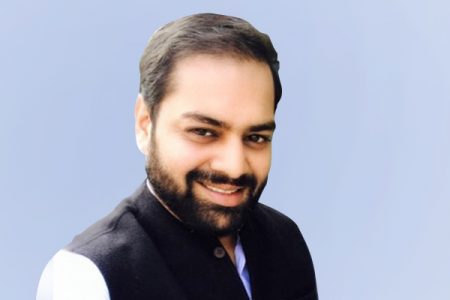Highlighting the transformation in healthcare recruitment triggered by the pandemic, Avishek Agarwal, co-founder and CEO, Jobizo predicts some trends that will play out in the year ahead
The healthcare market in India is expected to reach US$ 372 billion by 2022 and will generate 2.7 million new jobs by the same year. Despite the contribution to the economy, the Indian healthcare system remains unstaffed to a daunting extent. The scenario was highlighted as scores of medical health professionals quit as the pandemic jolted the country socially and economically.
The pandemic has been a major catalyst that allowed healthcare recruitment to undergo imperative changes. It brought to notice the need to manage the doctor-patient ratio in India, currently at 1:1456. Healthcare recruitment has also undergone an empirical transformation in how they access human resources and how medical services hire and retain professionals in the industry.
As 2022 rings in, recruiters working in the health sector look out for trends that will shape up how human resources are hired, upskilled, and retained in the healthcare industry.
Technology-driven skill-verification
According to the Ministry of Home Affairs, 8,81,254 Indian professionals have renounced their citizenship in the last seven years, till September 30,2021. Most of these are highly skilled health professionals that are vital to our healthcare industry. The COVID-19 pandemic also pointed at the need for healthcare professionals to be versed in administration and management skills. Unanticipated outbreaks and increasing patient load are stress inducers for the healthcare industry. As digital platforms bring in AI and automation in healthcare operations, verifying skill set will be an easier task for healthcare industries. The digital platforms will also enable healthcare workers to earn enough credit for their skills through remuneration and skills development. However, reliance on tools and services that can filter out the skilled from unskilled will take precedence, unlike how it is for other verticals across various industries.
Additionally, the technology will become scalable enough to give ratings, feedback as well as do background checks for the professionals. We have examples from mainstream recruitment portals like Naukri, Monster, and Indeed, etc, trying to automate each industry hiring, and hence we are seeing healthcare-focused recruitment technology like us coming into play.
Virtual and remote hiring
The COVID-19 pandemic involved hiring professionals on urgent notices. Hiring medical health professionals involves time and costs to carry background research and conduct interviews. Managing scores of interviews at different health centers also becomes a Herculean task for applicants. These medical college graduates search for jobs cursorily after undergoing long academic training.
2022 will continue to see the same trend in healthcare recruitment as well. Platforms will act as directories offering job listings for health workers and a pool of human resources for health centres
Flexibility contracts and hiring locums
Health centres in India have long faced protests and demands from contractual workers for a permanent job. Workers on the other hand worry about future opportunities.
India currently is short of 1.1 million healthcare workers to reach the ratio of 25 healthcare workers for every 10,000 people. These numbers from a WHO report highlight the possibility of employment to all existing workers. The scanty numbers of health care professionals worsened as COVID-19 fatalities increased. There is also a scope of bringing back 30 per cent of the workforce that has stopped working, as per a study by the Indian Institute of Public Health. These professionals stopped working owing to noxious work cultures, family responsibilities and higher education preparations.
The health sector in 2022 will witness platforms organising the process of hiring contractual professionals. Hospitals and clinics will hire resources available in the hyperlocal surroundings. Health workers will be able to monitor the availability of vacancies in real time. They will also be able to prioritise career opportunities that allow working on other commitments, such as higher education.
Retaining experienced talent pool
Healthcare as an education involves rigorous training and remote internships that require resilience from students. This puts expectations of a bright future from jobs in the healthcare industry. However, reports from the Indian Medical Association reveal that over 80 per cent of doctors are stressed in India. Low wages, strenuous work hours and a hostile environment leave doctors burned out. Such conditions display the healthcare industry as an inapt employer for prospective students in academia.
Health centres on the other hand have a dire need of skilled workforces to provide services to the patients. Health services need to understand the competition to retain the right talent. This conundrum requires an outsourced intervention. Digital platforms can help provide the right on-boarding experience and support to the professionals. This can help Indian doctors stay in the homeland and receive value as important assets to the healthcare industry.
Healthcare recruitment in India still needs to experiment with AI and technology-driven assets that have enabled smarter and more precise hiring of the right talent pool. This assistance should be assessed to develop the human resources till the contract has been completed, allowing healthcare services to be able to reach their optimum performance potentials. As with the surge of wellness and healthcare commerce in 2020 and 2021, 2022 will also see the rise of platforms like Jobizo that are disrupting and streamlining the healthcare recruitment industry, making it technology driven, hyperlocal and accessible to everyone who is part of the health care infrastructure in India.

